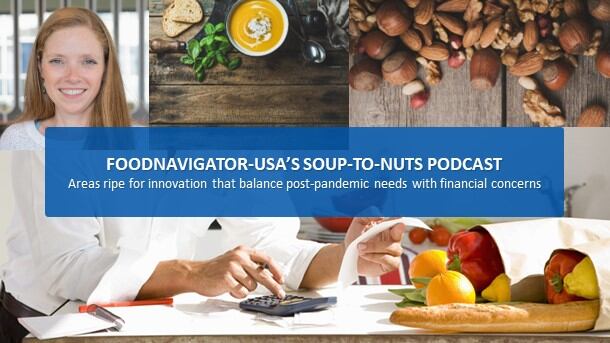According to IRI data from 210 Analytics, sales of refrigerated meat alternatives fell a startling 16.1% to $41.8m in May over the previous year – pulling down revenues of some of the biggest players in the space, including Beyond Meat which reported this month that its revenue fell a staggering 10% in its second quarter and Maple Leaf Foods, which reported this month that sales in its plant protein group were down 15.2% in the second quarter from the previous year.
Popular oat milk brand Oatly also saw stocks plunge earlier this month after it reported a record loss of $72m in its second quarter despite a quarterly sales increase to $178m from $146m the previous year – prompting it to pump the breaks on expansion plans as it battles headwinds pushing against the entire industry.
But despite these high-profile hits, the overall plant-based segment continues to grow and shows no sign of slowing. According to market data from the Plant Based Foods Association gathered and analyzed with The Good Food Institute and SPINS, the plant-based sales grew a whopping 54% to $7.4b in the three years from 2018, including a 6.2% surge in 2021 over 2020.
To further build on this momentum and seize opportunities within the plant-based food and beverage segment as well as address macro challenges facing the segment, stakeholders will convene in New York City next month at the Plant Based World Expo, details of which event content chair and strategic advisor Ben Davis shares in this episode of FoodNavigator-USA’s Soup-To-Nuts podcast. He also shares how consumer perceptions of plant-based are evolving and the challenges and opportunities these shifts are creating. Finally, he shares how plant-based companies can survive and thrive during uncertain economic times by investing in more than new product development.
[Editor’s note: Never miss an episode of FoodNavigator-USA’s Soup-To-Nuts podcast – subscribe today.]
The past three years have accelerated growth of plant-based, diversified its potential
When the Plant Based World Expo first launched in 2019 it was focused on basic questions about what qualified as plant-based and attendees tended to be passionate pioneers rather than mainstream buyers. But as Davis explains, in just three years not only has the show grown – serving as a measuring stick for the entire plant-based industry – but the level of engagement and calibre questions have deepened, reflecting the speed at which the category is evolving.
Still nascent when the pandemic hit, the Plant Based World Expo overcame travel and gathering restrictions in place in 2020 to create an event that supports and reflects the fast-growing plant-based community as illustrated by its 60% growth between 2019 2020.
“It just shows that there’s an eagerness for people to gather, for people to try new things, for people to withstand the risks tha tare clearly out there for doing these things in order to participate in the growth of an industry that has so much potential right now,” Davis said.
He added that not only has the community grown, but it is becoming increasingly sophisticated – as illustrated by no longer needing to define or justify the need for plant-based products as was the case in 2019 or being limited to passionate pioneers. Rather, the community now welcomes entire teams of buyers from mainstream retailers who are eager to find plant-based products across categories – no longer fearful that they are niche products.
For example, Davis said, while center of the plate proteins were the focus three years ago, now food service purveyors, retail buyers and consumers are looking for plant-based products across segments to complement proteins and round out a meal, such as condiments, breads and grains, cheese alternatives and more.
From frozen meals to snacks to fermented foods – areas ripe for innovation abound
Consumer demand for a complete plant-based meal, rather than just one or two star elements, is also opening for innovation frozen meal segment where Davis says he sees significant opportunity for innovations around plant-based that draw on multicultural flavors and foods to offer a complete but convenient experience beyond a single patty or nugget.
He explains that as consumers seek more plant-based options that require “next level” culinary creativity and skills, the frozen aisle and prepared food segment are two places where they can discover how dishes that are fully vegetable or that incorporate meat alternatives can draw on culinary trends and styles from around the world.
Davis also sees untapped potential in plant-based snacks and around fermented foods.
For example, he called out the rise in mushroom jerky over the pass several years that has followed the trajectory of meat jerky. But he adds consumers aren’t always looking for a high protein food for their snack – sometimes they want a specific texture, such as a crunch or indulgent creaminess, or something with a bright, bold flavor – both of which are being met with fermented foods from pickles and kraut to plant-based yogurts and smoothies.
Moving beyond protein at the center of the plate
For all the hub-bub about center of the plate proteins, Davis also notes the center of the plate increasingly doesn’t need to be reserved for a protein – it could be a fungus, which he says an ingredient category increasingly brimming with creativity.
“As far as the innovation in offering meat-like eating experiences, I would point to mushrooms as the number one. And that is coming from my own experience of trying everything that we had at our show in London last October,” including a braised mushroom in barbecue sauce that replicated brisket, Davis said.
He also noted the functionality mushrooms offer – from adaptogenic health properties to texture and mouth feel -- are “still very untapped and undiscovered,” giving them plenty of runway for future innovation.
Opportunities beyond new product development
New product development isn’t the only place ripe for innovation within the plant-based industry – Davis notes that investment in infrastructure to support new launches and fully meet plant-based consumers’ needs are also desperately needed.
For example, he noted that plant-based products made on equipment shared with dairy or other animal products could turn off some consumers for health reasons, such as if they have an allergy, or ethical ones, if they don’t want anything to do with animal agriculture.
Likewise, he says, supply chains for key plant-based ingredients need to be reinforced and further cultivated.
Another area that Davis says is equally essential to the long-term success of plant-based businesses but may be less flashy than new product development is cultivating authenticity and aligning company and consumer ethics.
He noted that as consumers become more savvy about plant-based and more options become available they have more opportunity to support companies that share their same values rather than settle for one of a limited set of options on store shelves.
Building on that, Davis predicts to drive notable growth in the next three years the plant-based industry will need to fine-tune their offerings to be more culturally appropriate – starting with moving beyond burgers and nuggets as the cornerstone of American cuisine and embracing more diversity.
Still time to register or host a booth at next month’s conference
Industry players that want to learn more about how the plant-based segment is evolving, what consumers want and where there is the most opportunity for growth can do so at the Plant Based World Expo in New York Sept. 8-9. The event will have three education tracks focused on retail, food service and plant-based industry, allowing for deep dives into the issues we’ve discussed today plus more. The show’s expo floor also promises to include innovative new products that highlight the diversity of plant-based offerings, including new areas for development.
To learn more about the event, including booth opportunities, visit plantbasedworldexpo.com.




